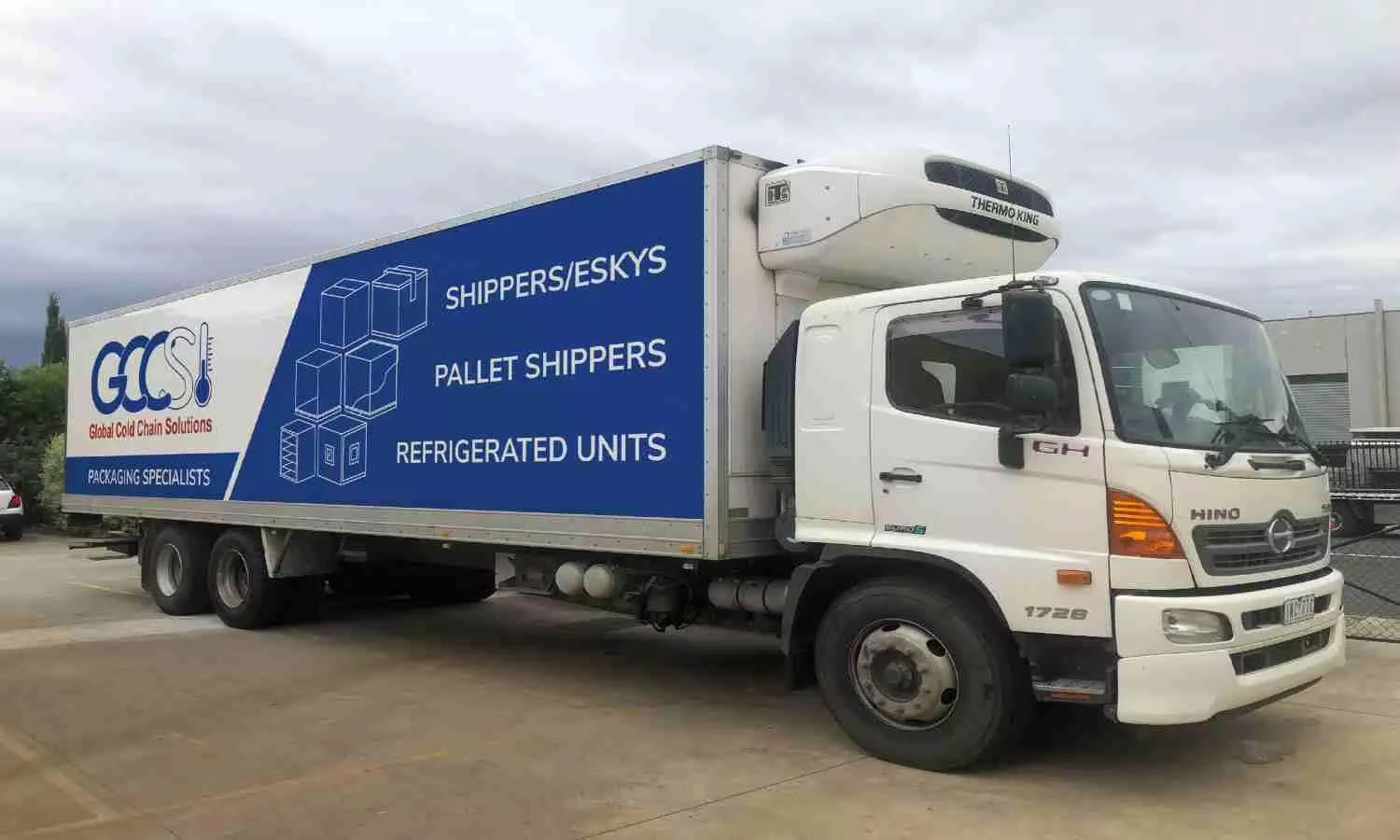GCCS sharpens focus on sustainability, set to shape future of pharmaceutical packaging
Founded in 1992, GCCS has been in charge of ecologically responsible vaccine transportation packaging since the start of the vaccination distribution world over

To ensure all solutions adhere to sustainability, GCCS packages are manufactured using a satellite-based location approach
When the vaccine rollout started in the latter half of 2020, the world collectively heaved a sigh of relief.
The vaccine would not only help prevent Covid, but also end the much dreaded lockdowns worldwide. People could finally step out of their homes in peace and meet their loved ones.
However, as pharmaceutical industries managed the BTS, concerns were raised on the need for packaging with low carbon footprint.
Enter sustainable packaging! Sustainable packaging is fast becoming popular fulfilling the industries; needs, while limiting environmental impact.
One such provider, which remains a global giant in sustainable packaging is – Global Cold Chain Solutions (GCCS) – an Australian-based packaging firm that focuses on environmentally friendly processes. GCCS' USP is that their containers can be reused at least ten times.
An Ecologically Responsible Packaging service
Founded in 1992, GCCS has been in charge of ecologically responsible vaccine transportation packaging since the start of the vaccination distribution world over. The company handles vaccine packaging for major pharmaceutical companies in the sector.
Michael Brielmann, GCCS' managing director, says 20 years ago, the company was toying with the seed of an idea to provide packaging solutions for the pharmaceutical business. "Over time, we evolved into a holistic solution provider, which means we offer everything from data loggers to temperature monitoring to mapping warehouses. We have optimised the solutions aimed at specialising in customising solutions," Brielmann highlights.
The Process
To truly understand what goes into the creation of customised ecological packaging, it's necessary to take a look at the GCCS' meticulous process.
The very first step is where GCCS gathers detailed information about the merchandise. "At first, we ask our customers about the merchandise. For instance, we ask about the size, weight and transportation profile of the product. This essentially means asking whether it is travelling from Basel to Zurich or across Cairo to Johannesburg. This is important 'need to know' to keep the temperature stable," Brielmann says.
Once all the information is collected, the process moves into the second stage. "Next, we design and build a customised transportation packaging solution," the MD explained.
The Need for Temperature Control
He goes on to break down the process of working on temperature controlled packaging and how each step contributes to long-term sustainability.
The most vital aspect is to ensure that the medical product, such as the vaccine, is kept stable at the right temperature throughout the shipment.
The size of the box is the next factor to consider. To avoid empty space during shipment, a suitable packaging size of the product plays a critical role. "Using the optimal packaging size for the required temperature and time of transportation is the first step towards sustainability," Brielmann stresses.
One Size Doesn't Fit All
However, the question of size differs when it comes to air freight. "If you have an air freight shipment, there's more to consider than size. Some of our competitors use aluminium boxes that one can use over and over again. While you may initially think it is sustainable to use the box over and over, you have to keep in mind that these boxes are made of aluminium, thus rather heavy," Brielmann adds.
The tare weight for such solutions are rather high. "So, you are sending a lot of tare weight via the air as well, emitting CO2, whereas our solutions are significantly lighter. And, depending on how we complete the setup, we can reuse them up to 8 or 10 times. Then we may start refurbishing. So we can use it another 10 times."
As a second step, GCCS offers a refurbishment program to its customers in an effort to re-use thermal packaging. "The broken or minorly damaged packages are repaired, the parts are replaced and they are reused for the next shipment," the MD explains.
Keeping Cool
As a cooling device, GCCS uses Phase Change Material (PCM) gel bricks for its packaging solutions in 95 per cent of all the shipments. By using PCM gel bricks, temperatures can be brought down to minus 30 degree celsius. However, the biggest advantage of these PCM gel bricks is that it can be re-used countlessly. And to ensure this they are also part of the return and refurbishment programme. This means one can return the containers in the best possible condition and GCCS will repair the damage and make it workable for re-use.
"Some vaccine manufacturers require ultra-low temperatures of minus 60 to 80 degrees celsius. For this purpose, dry ice is the only solution. We supply packaging for these, and in doing so, contribute to and serve our global customers with a full range of solutions," adds Brielmann.
The Satellite Model
To ensure all solutions adhere to sustainability, GCCS packages are manufactured using a satellite-based location approach, which means that each manufacturing location is able to produce and refurbish the same product. The goal here is to be as near to the client as possible, thus avoiding the need to transfer empty boxes across greater distances.
Brielmann says the benefit of the customisation process is to provide the best-fit packaging solution tailored to the customer's requirements.
"For this, we make sure not to use boxes that are either too large or too tiny for the consignment's payload."
The Perfect Fit
The answer to an optimised ecological solution lies in the fit of the packaging. "If the packaging fits well, you are already contributing to an optimised ecological solution, and additionally it is affordable since you're not wasting room on cargo flights. So the correct size is really beneficial to sustainability."
At it's core, GCCS' ecological, yet affordable, packaging, has three main components –re-usable PCM gel bricks, a refurbishment programme, and a global satellite model – all the while keeping sustainability at the forefront.
Future Plans
With two sites in Australia, GCCS has offices sprawled across the world from Germany to Malaysia to India. With hubs in Mumbai, Ahmedabad and Hyderabad, GCCS has plans to construct a warehouse in Bengaluru. Also in the pipeline is a warehouse soon to be set up in North America.
"I believe you can only plan an expansion if you believe in growing markets, have an adequate offering, and you are confident to fill your production capacity. We expanded our production capacities in India, Australia and Europe last year. This year, we're targeting expansion in North America, to keep up with the production volume in Europe, one of the major markets in the industry," Brielmann ended.
(Photo Credit: GCCS)

Zinal Dedhia
Zinal Dedhia is the STAT Media Group's Principal Correspondent and a journalism graduate of Nottingham Trent University, UK. She has worked with Radioandmusic.com, ByteDance, and That's TV. Zinal is passionate about air cargo, aviation, and cargo drones. Her email address is zinal@statmediagroup.com.


